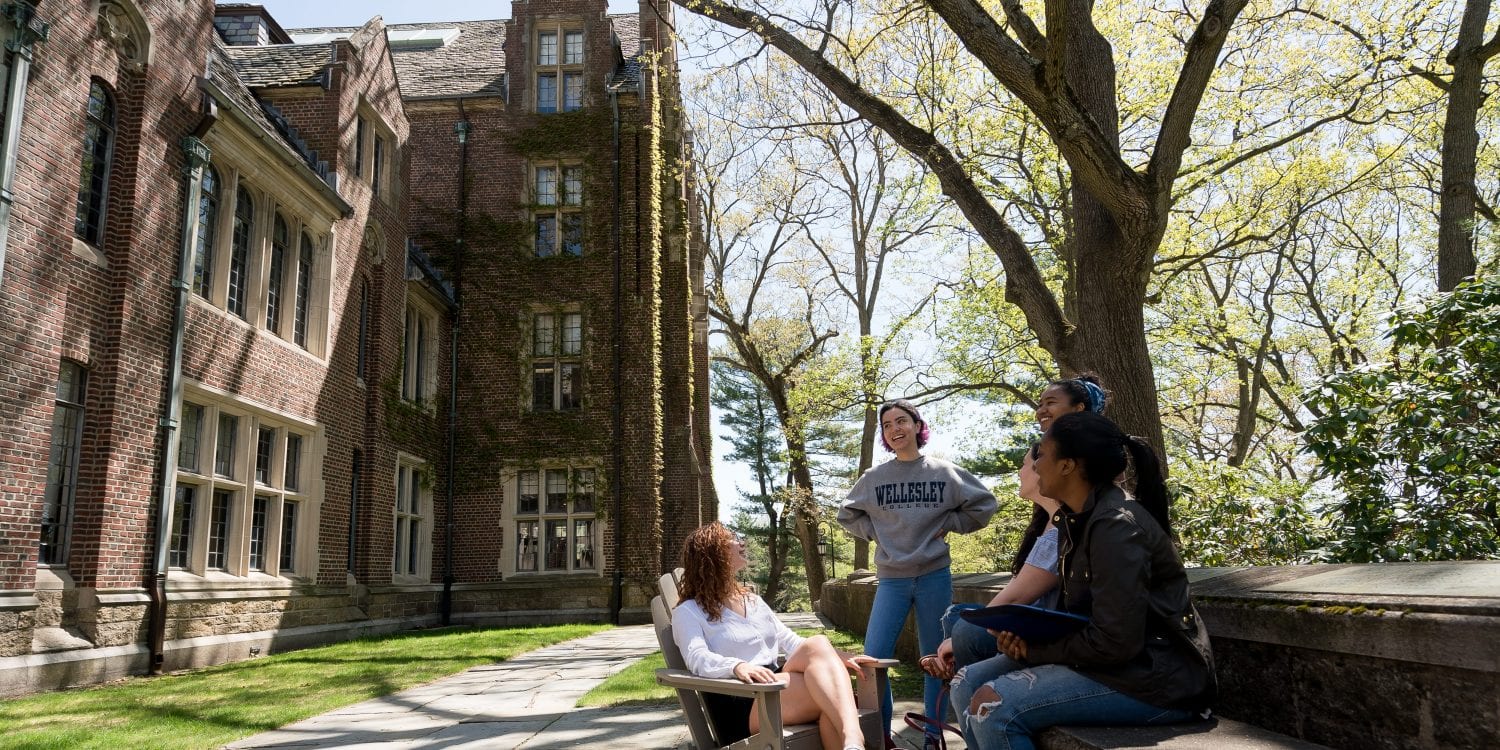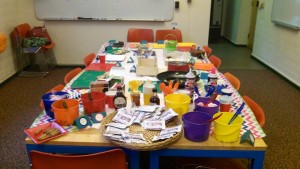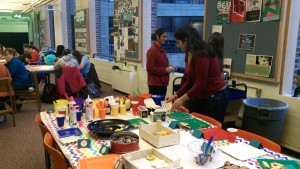* note that this is going to be one of two blog posts this week, because my thoughts diverged down the middle :). This one is “Being a Senior in College”, and the next is “End of a Semester.”
Hello readers.
(At this point I pause and smile at the screen for a moment. That’s where the smiley face always comes from. Do you have a better symbol to capture this?)
I have just finished my fall semester, senior year. And on a Monday, no less. Yesterday I just got up and powered through. Stayed up until 8am, turned in a paper at 8:15am, brushed my teeth, went to sleep, got up at 12:30pm, brushed my teeth again, tutored for a few hours, took a 6-hour take-home exam, worked out, then went to sleep. It’s kind of miraculous, looking back a day. It’s kind of miraculous being here, being who I am now, the choices I have before me and those that I make.
What’s it like being a senior?
For one thing, you get a frankly disproportionate amount of respect on campus. I think it goes to my head. There are power dynamics on campus as there are everywhere where human bodies are running around interacting with each other, and there is always that tension-filled moment when you’re introducing yourself to someone and you immediately have to ask “What year are you?” Because it matters, what year you are. There is the grouping of upper-classwomen/ lower-classwomen, but first-years get a category all of their own in terms of expectations, and I realize now that seniors get special status as well. So that initial introduction is always tension-filled, and if you happen to make a mistake, you’ll know it soon enough. “I’m so sorry,” one of my floormates told me this semester. “I thought you were a first-year! I can’t believe I didn’t know—I’m so sorry, I didn’t realize.” And if I were a junior, or a sophomore, I would have cared immensely that she was not treating me appropriately, and found a way to bring up the fact that I was a junior or sophomore. Rather quickly. But as senior, I didn’t even notice. I don’t ask what year people are anymore—if they’re an upperclasswoman, I know them by face, and besides there’s no one I need to be cautious with. My emails to the other members of the community are shorter. And the weirdest, completely strange fact about this whole thing is how subtle it is. This respect represents a flurry of activity in everyone not-a-senior’s heads on campus: energy and attention transformed into behavior, and I don’t even take it as my due, I just plain don’t notice. I’m laughing at myself now. We are masterminds at taking things for granted, but I want to appreciate the hills and valleys of effort being given to my year, willfully, unquestioned, the legacy and part and parcel of being human.
I love tutoring. I’m tutoring for Neuro 100, which means I now have six first-years I see for an hour a week. It is the greatest job I could imagine (besides blogging. How do I end up with all the best jobs on campus?), and I enjoy it, I get paid for it, and I get to put it on my resume. Why should I get three benefits when I’d settle for any one of those? I don’t know, but I’m keeping my head down and running with it. More to the point, tutoring is my only leadership-ish job on campus. On athletic teams, the upperclasswomen are responsible for the underclasswomen: you are expected to take up leadership roles and you are expected to take extra time to mentor them. In non-athletic team life, I am loosely expected to mentor the students on my hall, and loosely expected to represent the senior class well on campus. I am also perfectly within my right to keep my head down, wave “thesising!” at anyone who looks twice at me, and hole up in my room and study. …These are MARVELOUS expectations! They also make no sense to me, coming from an athletics background, but then again, senior year does seem to be a confluence of unacknowledged but astonishing things. So I do my work most of the time, and love when I’m able to tutor and give back to the community, interact with younger students who do still have that sense of wide-eyed surprise and interest around them.
I cannot imagine being more confortable than I am right now. I was feeling a bit lonely yesterday, so I emailed two friends and asked if I could work with them today. They both got back to me immediately and with many exclamation points and smiley faces. I have my own room, my own schedule (see the first paragraph. Definitely have my own schedule), no responsibilities on my time that I did not happily plop there, no current stressors, long-term-loving-beautiful friends, fantastically engaging classes, caring mentors, free transportation, great food, a loving family, jobs I love—the list goes on. I return always to my dad’s parting advice/idea that “college is the best time of your life,” and every time I say I see it, I am in different period of my time here. Well, I see it now. There is nothing I would fix, nothing that I haven’t been able to fix about where my life is, and if joy is the absence of pain, is love of everything that I am doing, then I am there. I am here. It’s frightening in a sense, because I know that in the future I cannot have a daily schedule that involves going to classes I enjoy, spending an hour or two talking to friends, eating food made for me, doing exactly what I want to do—in short, my amazing, astonishing world right now. And again, I run into the “taking for granted” wall, because we only acknowledge what we have when we are faced with it being taken away. I have a semester left of college—an eternity, in how I bide my time. Let me hold on to this comparison, this memory—because it’s hard to hold on to a whole semester, rather than a short slice of life, but this tremendous beauty should be acknowledged for every moment that I am here.
I’ve changed from first year. I see it most in the research lab setting, and my daily mental state (two very different metrics, I’d agree.) Maybe it’s that I’ve been doing research in the same lab for so long now, and I’m made SO MANY mistakes. If you ask me what I’m learned the most from in college, my answer would be research: how to think, how to interact with people, how to interact with the greater scientific community, how to form long-term work relationships, how to represent myself, how to mentor, how to show respect, how to work, how to apologize, how to ask for help, how to fix things, how to write, how to work independently… it has not been the most pleasurable thing I’ve done (see the “SO MANY mistakes” clause), as this type of trial-and-error learning is never easy. But it has made me so much the better person, so much more prepared for my future, and I am fearful of who I would have been had I not had the room to do all of this learning now. And though I am not nearly done learning in this domain, there are clues that some of it has stuck. “I’ve noticed you’re more cautious in your approach.” “Remember when…? [cue embarrassing situation that no longer occurs]” “You handled that diplomatically,” “You are very capable of being clear.” “She was pleased with your work.” “Yeah, you do that less now,” “Monica’s good at…” It’s the little things, the small comments, and the lack of gigantic errors blowing up in my face. Classes have taught me an immense amount, certainly about content, but research has taught me thinking, and interaction.
The other greatest difference I see in myself from first year is how much calmer I am. I am reliably informed (my mother) that I’ve been getting more relaxed every year (I think I hit my peak at junior year of high school, when the story goes that I yelled at my sisters for “breathing too loudly” while I was studying. The worst part is that I can remember that incident.) I am also reliably informed (by my friends) that I am still insane, but that’s fine as long as I’m in a mental state to deal with it. And I am. The Nicaragua trip was a turning point: the realization that people live fulfilled lives without working every single minute of every day, and you know what, you’re super lucky, you know? These days I can see my mindset and control it—“you’re getting anxious, there’s no reason for it, drop it, it’ll get done.” I learned this semester that sleep, one of my biggest anxieties, is not something to be frantic about either. I certainly could not have completed yesterday (paper, sleep, tutoring, test) as a first-year without having a nervous breakdown. Moreover, it’s not just me. When I talk to my senior friends, the points of worry are often more high-level compared to my friends who are younger. And though we’re all pretty high-strung, Wellesley attracts a certain type, so it’s all in the internal comparison.
So what’s it like as a senior? Pretty weird. People outside the college are interested in what I’m doing in the future, I get copious and odd amounts of respect, I know myself quite a bit better, I’ve learned and changed over the years, I’m the most comfortable I imagine I’ll ever be, I love tutoring and am also allowed to do my own thing, I bought my own laptop with my own money, I know all of my friends’ back histories, my parents keep on telling me they’re proud of me, I have some absolutely amazing adults and friends who care about me, the opportunities continue to be astounding, the kindness of people continues to be astounding, I’m healthy, happy, and astonished. It’s almost with a sense of indignation that I look back on this semester, because really, there’s no way I deserve this. There’s no way any single human deserves this, the chance to have everything, to live this kind of life. It’s absolutely not fair, it’s remarkably, inconspicuously astonishing, and while the proper response may be gratitude, I think it must be threaded through with a profound degree of being flummoxed.
May I always be a senior in college, keep the confusion of this sense of acknowledgement. Because in this moment I am grateful and astonished and undeservingly special, and that deserves a deliberate, wide-eyed wonder.
Monica




